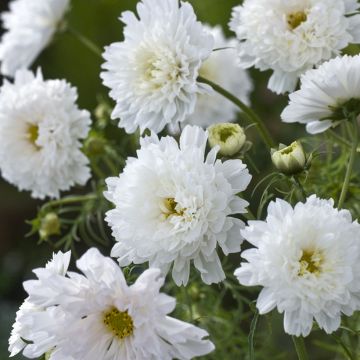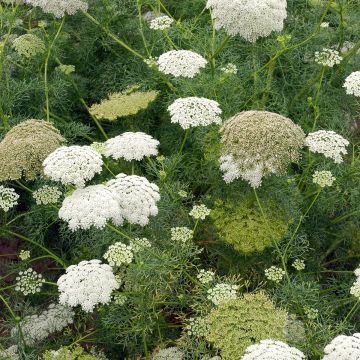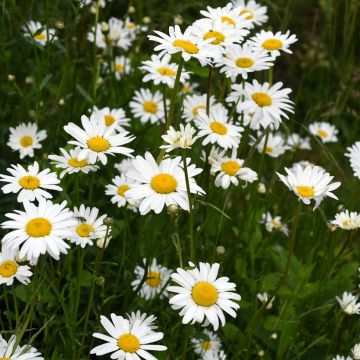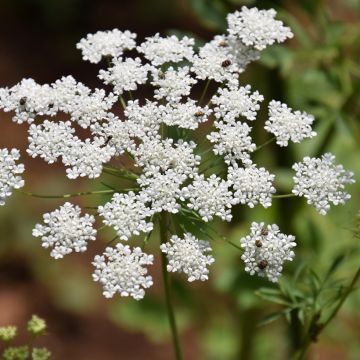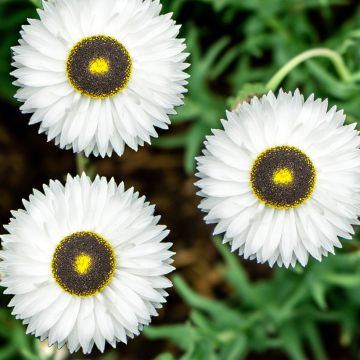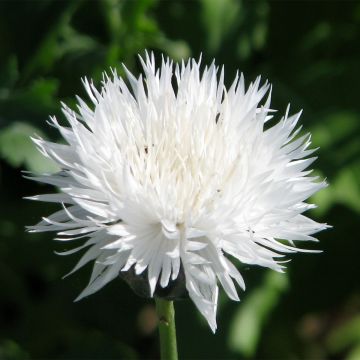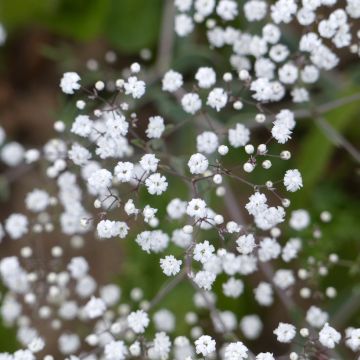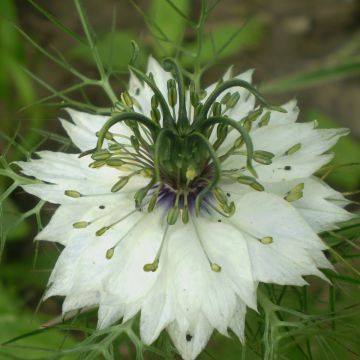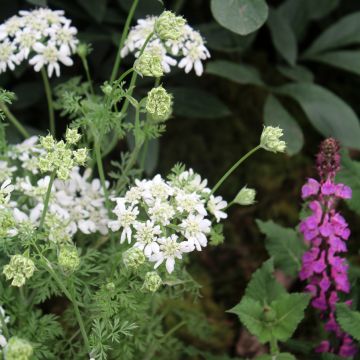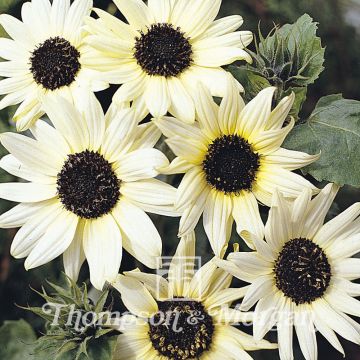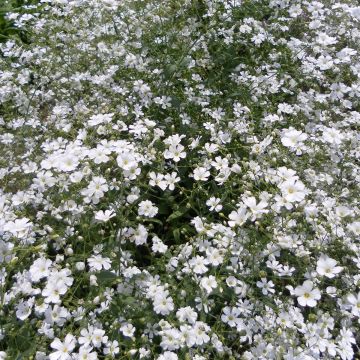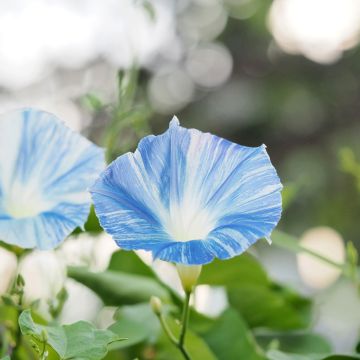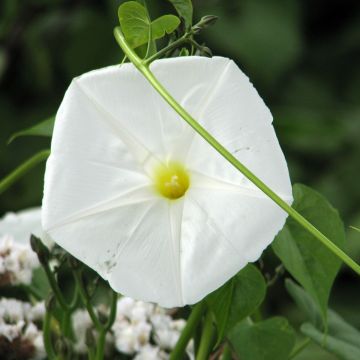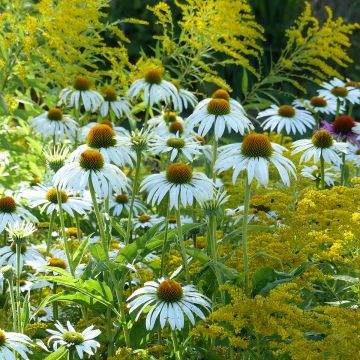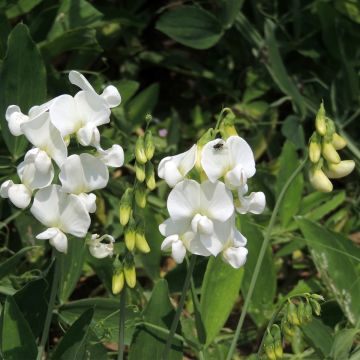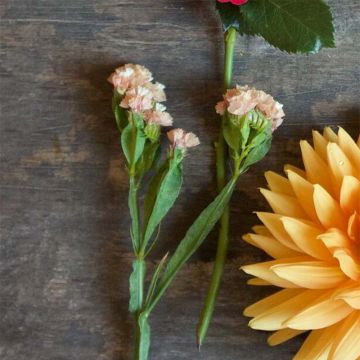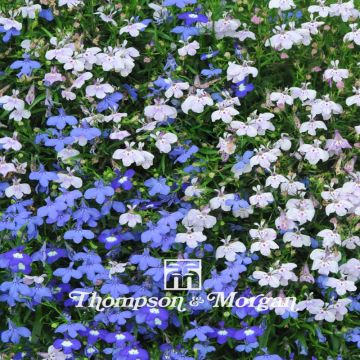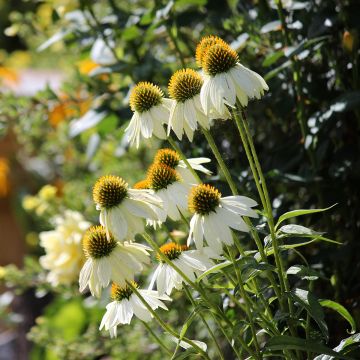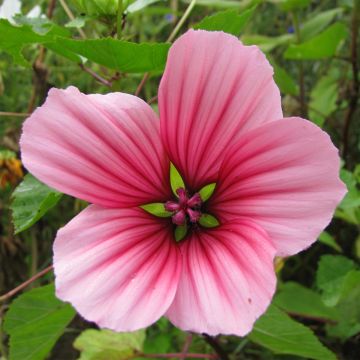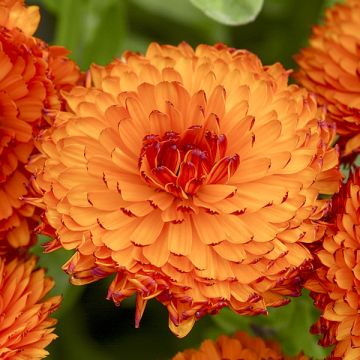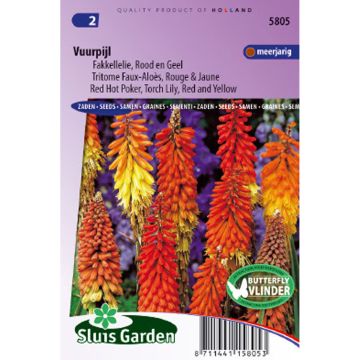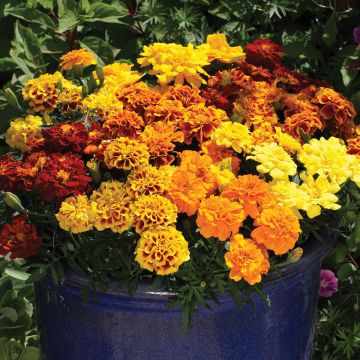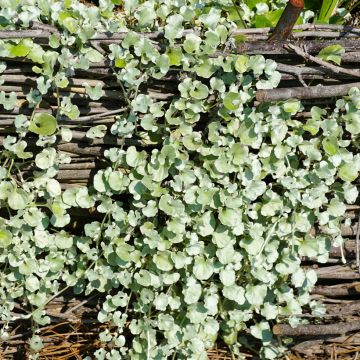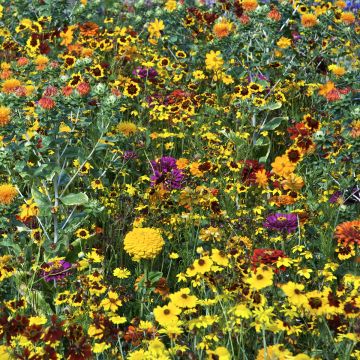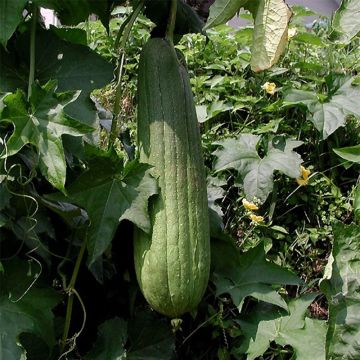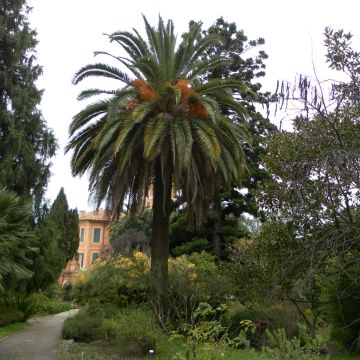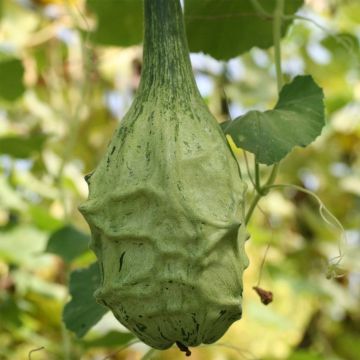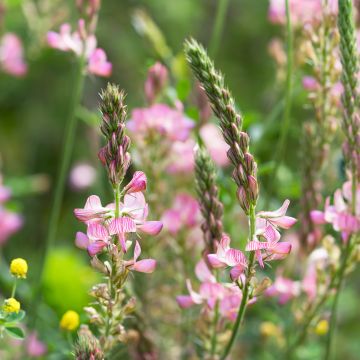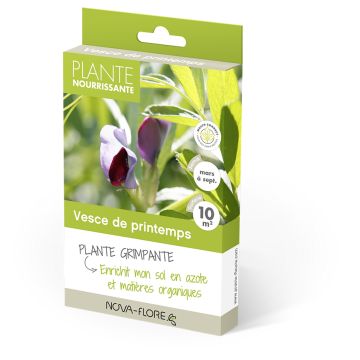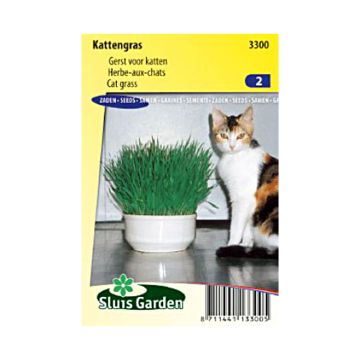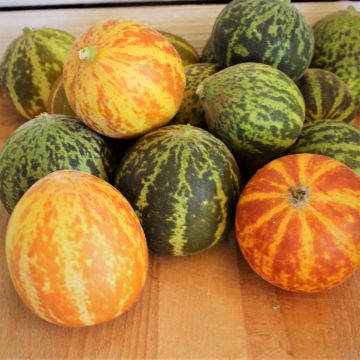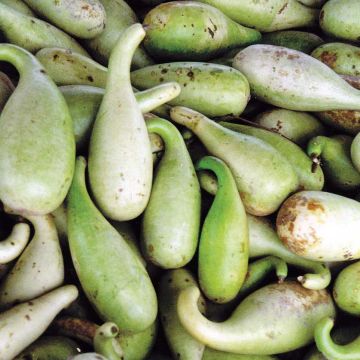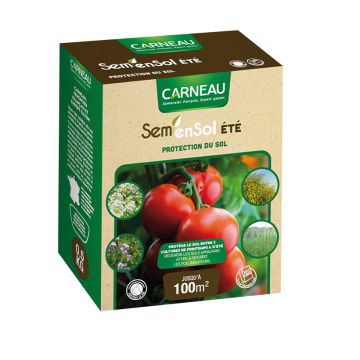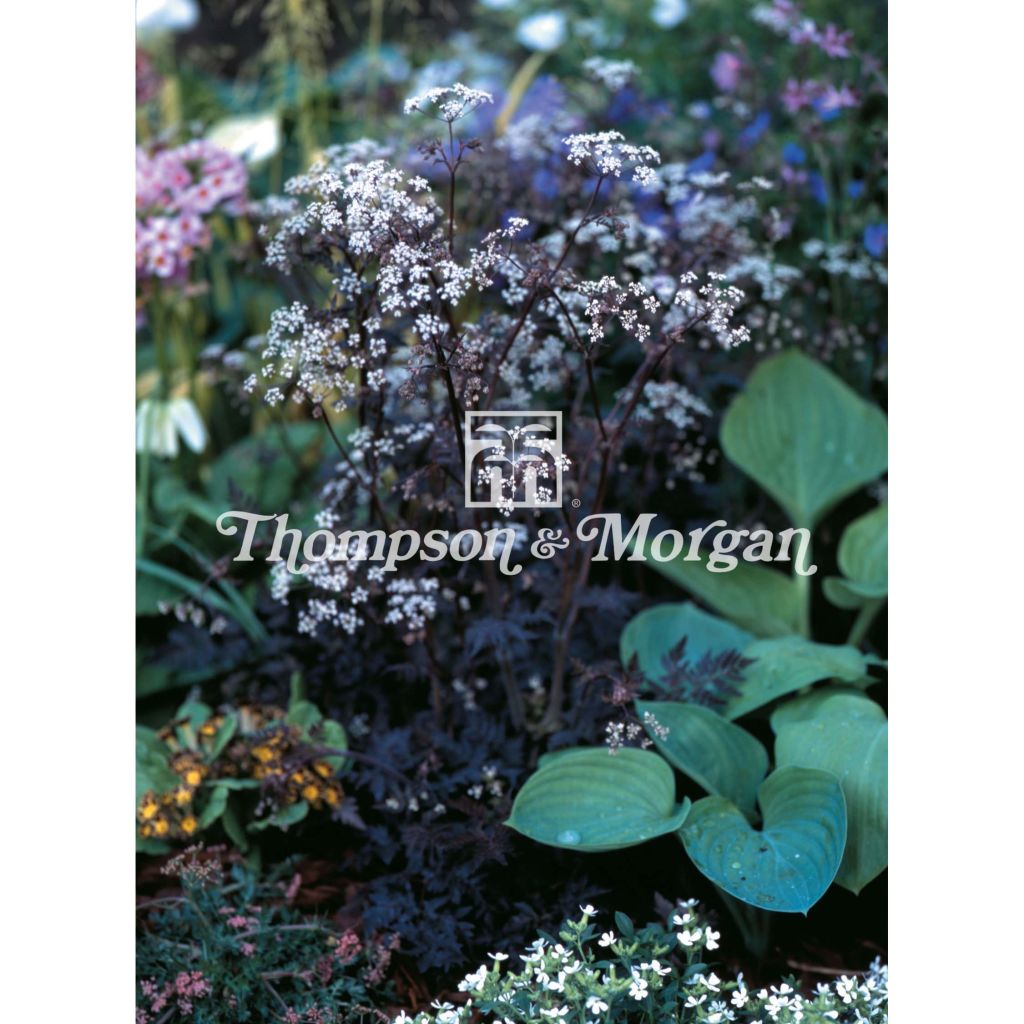

Anthriscus sylvestris Ravenswing Seeds - Wild Chervil
Anthriscus sylvestris Ravenswing Seeds - Wild Chervil
Anthriscus sylvestris Ravenswing
Cow Parsley
Why not try an alternative variety in stock?
View all →This plant carries a 6 months recovery warranty
More information
We guarantee the quality of our plants for a full growing cycle, and will replace at our expense any plant that fails to recover under normal climatic and planting conditions.
Seed-only orders are dispatched by sealed envelope. The delivery charge for seed-only orders is €3.90.
Does this plant fit my garden?
Set up your Plantfit profile →
Description
Anthriscus sylvestris 'Ravenswing' is a surprising form of cow parsley with very dark foliage. Its finely cut foliage of a very dark purple gives it the appearance of a black fern, stunning in a wild or curious garden. Its white flowering, made up of delicate umbels, forms a beautiful contrast of light and dark with its foliage that can be enjoyed from late spring. Often biennial, this carefree plant self-seeds abundantly wherever it pleases: seedlings can easily be transplanted according to the gardener's desires.
Anthriscus sylvestris, sometimes called cow parsley, belongs to the Apiaceae family, just like wild carrot, parsley, and hemlock, with which it is often confused. It is a pioneering plant, which easily colonises rubble, roadside edges, fallow land, and the vicinity of houses. Native to Europe, boreal and western Asia, and North Africa, it grows in open spaces, mostly on clay, slightly calcareous, and not too dry soil. Its growth cycle can be annual, biennial, or as a short-lived perennial depending on the climate.
'Ravenswing' has a thick and elongated stump. This variety quickly forms a bushy clump with a height of 80cm (32in) to 1m (3ft) depending on the soil fertility, with a spread of 70cm (28in). The hollow, channelled stems show slightly swollen nodes and are hairless towards their upper part. The plant develops shiny, tripinnate, dentate leaves of a very dark purple, measuring 15 to 30cm (6 to 12in) long. The brown-purple colour tends to become bronze in summer, especially if the plant is exposed to partial shade. From May to July, depending on the climate, small umbels with a diameter of 5 to 7cm (2 to 3in) bloom at the top of the upright stems, organised into smaller umbellules: the umbel has 7 to 16 almost equal ray florets, each carrying an umbellule with 8 to 12 secondary rays. They are composed of tiny white flowers with pink bracts, honey-producing and nectar-rich. The foliage will more or less disappear in winter, depending on the climate.
Anthriscus sylvestris 'Ravenswing' adapts to any good garden soil, it is an undemanding plant that harmonises with all its neighbours, perfect for designing a brand new or wild, curious, or naturalistic garden. It is valuable for bringing lightness and colour to flower beds, just like columbines, gauras, or grasses. In a flowery meadow, it will accompany centaureas, annual poppies, nigellas, cosmos, Ammi visnaga, ornamental carrots such as Dara, or thistles. It can also be successfully combined with roses, tulips, garden irises, shrubby wormwoods, and coastal cinerarias, with white or silver foliage. The foliage and flower umbels are also perfect for bouquets.
Report an error about the product description
Flowering
Foliage
Plant habit
Botanical data
Anthriscus
sylvestris
Ravenswing
Apiaceae
Cow Parsley
Cultivar or hybrid
Other Flower seeds A to Z
Planting and care
Sowing period: from September to February or from May to June.
Sow Anthriscus sylvestris seeds in trays or pots, on the surface of moistened seed compost. Cover the seeds with a thin layer of compost or vermiculite. Place your trays in a mini-greenhouse or enclose them in transparent plastic bags and keep the seedlings at a temperature of 21°C (69.8°F).
Transplant the young plants when they are sufficiently developed to be handled into individual 7.5 cm (3in) diameter pots. Keep only the seedlings with dark brown-purple foliage, as sometimes a young plant can be uniformly green.
Cultivation:
Anthriscus sylvestris Ravenswing can be planted in autumn or spring in well-prepared and well-drained soil, not too dry in summer. Plant it in full sun or partial shade in the afternoon, spaced 40 cm (16in) apart in all directions. Water regularly in sunny exposure during dry weather. Mulch the soil in summer to keep it cool. Remove any seedlings that do not conform in colour, keeping only the darkest ones. You can easily transplant the young seedlings as soon as they are manageable to replant them in the desired locations. Be wary of attacks from snails, slugs, and caterpillars on young shoots, as well as powdery mildew in excessively hot and dry or excessively wet conditions.
Sowing period
Intended location
This item has not been reviewed yet - be the first to leave a review about it.
Flower seeds
Haven't found what you were looking for?
Hardiness is the lowest winter temperature a plant can endure without suffering serious damage or even dying. However, hardiness is affected by location (a sheltered area, such as a patio), protection (winter cover) and soil type (hardiness is improved by well-drained soil).

Photo Sharing Terms & Conditions
In order to encourage gardeners to interact and share their experiences, Promesse de fleurs offers various media enabling content to be uploaded onto its Site - in particular via the ‘Photo sharing’ module.
The User agrees to refrain from:
- Posting any content that is illegal, prejudicial, insulting, racist, inciteful to hatred, revisionist, contrary to public decency, that infringes on privacy or on the privacy rights of third parties, in particular the publicity rights of persons and goods, intellectual property rights, or the right to privacy.
- Submitting content on behalf of a third party;
- Impersonate the identity of a third party and/or publish any personal information about a third party;
In general, the User undertakes to refrain from any unethical behaviour.
All Content (in particular text, comments, files, images, photos, videos, creative works, etc.), which may be subject to property or intellectual property rights, image or other private rights, shall remain the property of the User, subject to the limited rights granted by the terms of the licence granted by Promesse de fleurs as stated below. Users are at liberty to publish or not to publish such Content on the Site, notably via the ‘Photo Sharing’ facility, and accept that this Content shall be made public and freely accessible, notably on the Internet.
Users further acknowledge, undertake to have ,and guarantee that they hold all necessary rights and permissions to publish such material on the Site, in particular with regard to the legislation in force pertaining to any privacy, property, intellectual property, image, or contractual rights, or rights of any other nature. By publishing such Content on the Site, Users acknowledge accepting full liability as publishers of the Content within the meaning of the law, and grant Promesse de fleurs, free of charge, an inclusive, worldwide licence for the said Content for the entire duration of its publication, including all reproduction, representation, up/downloading, displaying, performing, transmission, and storage rights.
Users also grant permission for their name to be linked to the Content and accept that this link may not always be made available.
By engaging in posting material, Users consent to their Content becoming automatically accessible on the Internet, in particular on other sites and/or blogs and/or web pages of the Promesse de fleurs site, including in particular social pages and the Promesse de fleurs catalogue.
Users may secure the removal of entrusted content free of charge by issuing a simple request via our contact form.
The flowering period indicated on our website applies to countries and regions located in USDA zone 8 (France, the United Kingdom, Ireland, the Netherlands, etc.)
It will vary according to where you live:
- In zones 9 to 10 (Italy, Spain, Greece, etc.), flowering will occur about 2 to 4 weeks earlier.
- In zones 6 to 7 (Germany, Poland, Slovenia, and lower mountainous regions), flowering will be delayed by 2 to 3 weeks.
- In zone 5 (Central Europe, Scandinavia), blooming will be delayed by 3 to 5 weeks.
In temperate climates, pruning of spring-flowering shrubs (forsythia, spireas, etc.) should be done just after flowering.
Pruning of summer-flowering shrubs (Indian Lilac, Perovskia, etc.) can be done in winter or spring.
In cold regions as well as with frost-sensitive plants, avoid pruning too early when severe frosts may still occur.
The planting period indicated on our website applies to countries and regions located in USDA zone 8 (France, United Kingdom, Ireland, Netherlands).
It will vary according to where you live:
- In Mediterranean zones (Marseille, Madrid, Milan, etc.), autumn and winter are the best planting periods.
- In continental zones (Strasbourg, Munich, Vienna, etc.), delay planting by 2 to 3 weeks in spring and bring it forward by 2 to 4 weeks in autumn.
- In mountainous regions (the Alps, Pyrenees, Carpathians, etc.), it is best to plant in late spring (May-June) or late summer (August-September).
The harvesting period indicated on our website applies to countries and regions in USDA zone 8 (France, England, Ireland, the Netherlands).
In colder areas (Scandinavia, Poland, Austria...) fruit and vegetable harvests are likely to be delayed by 3-4 weeks.
In warmer areas (Italy, Spain, Greece, etc.), harvesting will probably take place earlier, depending on weather conditions.
The sowing periods indicated on our website apply to countries and regions within USDA Zone 8 (France, UK, Ireland, Netherlands).
In colder areas (Scandinavia, Poland, Austria...), delay any outdoor sowing by 3-4 weeks, or sow under glass.
In warmer climes (Italy, Spain, Greece, etc.), bring outdoor sowing forward by a few weeks.

































